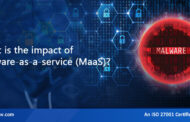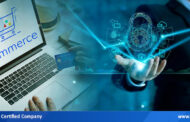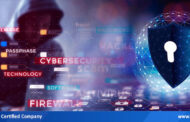The pandemic has altered our lifestyles to a great extent. Nothing we do is the same. The way we shopped, traveled or work has taken a different turn. This change has seen us migrate our lives online and spend the majority of our time on the internet, making us more susceptible to the nefarious intent of cybercriminals.
It only states the obvious. Security has become intrinsic to our daily lives.
The method uses by cybercriminals to execute their digital crime has made things more complex for the end-users and organizations alike. Businesses hence need to act accordingly if they want to stand a chance of protecting their sensitive data. Despite this, the rising number of security breaches suggests that the end-users are struggling with bringing their security habits up to the scratch.
Various researchers and studies have suggested that this indifference towards security may well be down to a lack of awareness. A large number of the global population don’t even know how their data could be compromised, let alone knowing about the Dark Web.
Its time we put an end to this and understand what the Dark Web is and how we can secure our information from malicious entities.
The Dark of the Web
The Dark Web consists of veiled areas of the internet that are inaccessible through popular search engines like Google. Awareness stems from horror stories of data breaches resulting in thousands of stolen credentials being put up for sale, ranging from passwords to bank account numbers and medical records. The majority of the data breaches are a result of weak passwords and reuse of passwords despite understanding the consequences of it.
The true extent of the dark web is not understood by most people.
As revealed by a recent study by the University of Surrey, almost two-thirds (60%) of listings on the dark web had the potential to harm enterprises. While it’s not all used for illicit purposes, the presence of such diverse networks of criminal activity means consumers should protect their information with the caution it deserves.
Among the terms that you’ll find for sale across the dark web are, credit card numbers, counterfeit money, and stolen subscription credentials.
Can Your Valuable Information be at Risk?
Researchers have revealed that 1 in 4 people would be willing to pay to get their private information taken down from the dark web – and this number jumps to 50% for those who have experienced a hack. Since 2013, over 9.7 billion data records have been lost or stolen, and this number is only rising.
The fact is, that most of us have no way of knowing whether our information is up for sale online. However, modern-day solutions proactively check for email addresses, usernames, and other exposed credentials against third-party databases, alerting users should any leaked information be found. This feature is being adopted by various solutions that enable users to change any exposed credentials. If the digital identities of users are found to be compromised, these tools help to improve security awareness and highlight the risks of poor password practices.
Dictating cybersecurity practices
In the fight against cybercrime, detection has a fundamental role to play but prevention ultimately has a longer-term impression. The key to prevention is security awareness even when technological solutions are pivotal to this end. Saying that employers have an equal part to play and a responsibility to drive cyber-secure practices across the organization.
With the aim of stabilizing the economy, more and more people are making a return to work. However, many of us will continue working remotely. Security awareness must therefore become a priority to help put a stop to the heightened risk of data breaches. This requires a joint effort between the organizations and employees from every department since, security risks are constantly evolving, and businesses must be vigilant if they are to overcome the challenge. Employing basic password practices is a good first step and goes a long way in the quest to improve security hygiene.
Technological solutions like eScan come with a myriad of advanced features that can help to keep our personal information secure.
To read more, please check eScan Blog







